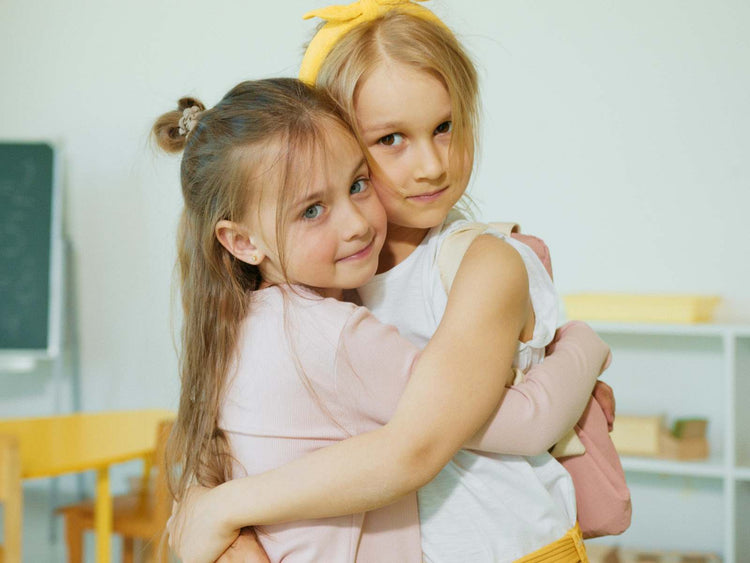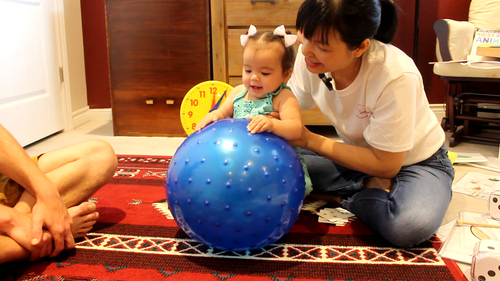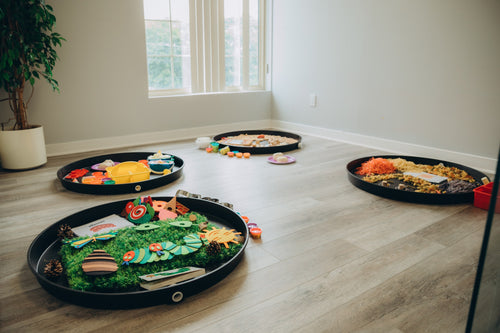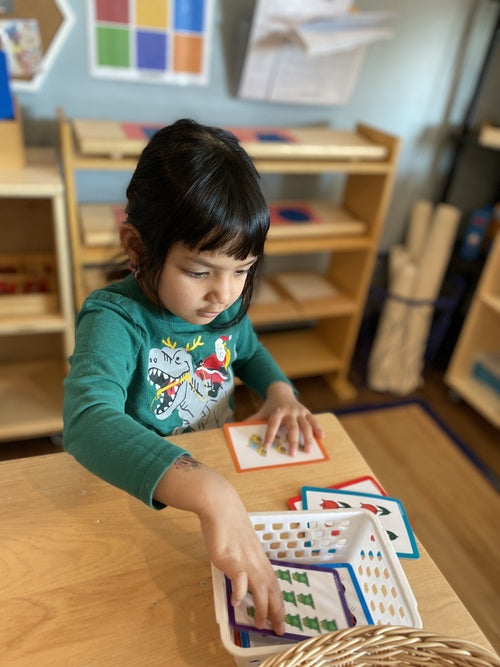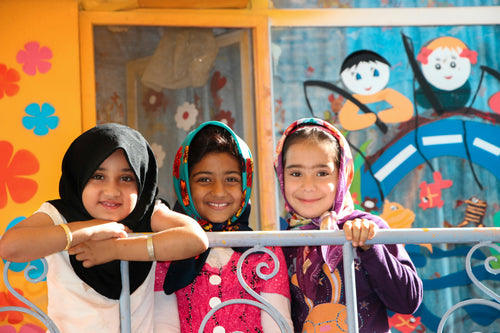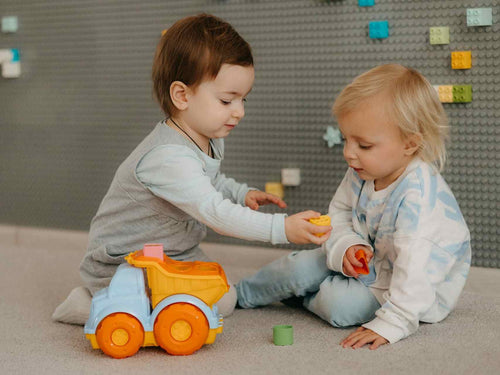Early childhood is a critical period for the development of social and emotional skills, which form the foundation for later relationships, self-awareness, and emotional well-being. The stages of social and emotional development in early childhood are influenced by a variety of factors, including family environment, social interactions, and individual temperament. Understanding these stages can help parents, caregivers, and educators support children as they navigate their early years.
Infancy (Birth to 18 Months): Trust vs. Mistrust
The first stage of social and emotional development begins at birth and lasts until about 18 months of age. During this period, infants are entirely dependent on their caregivers for survival. The primary task in this stage is developing a sense of trust. When caregivers consistently meet the baby’s needs for food, comfort, and affection, the infant begins to see the world as a safe and predictable place. This trust forms the basis for healthy emotional development in early childhood.
Conversely, if a caregiver is neglectful or inconsistent, the infant may develop a sense of mistrust. This can lead to difficulties in forming secure attachments and may affect the child’s ability to trust others later in life. The establishment of trust during infancy is crucial for developing a secure base from which the child can explore the world.
Toddlerhood (18 Months to 3 Years): Autonomy vs. Shame and Doubt
As children enter toddlerhood, they begin to develop a sense of autonomy. This is the stage where children start to assert their independence by exploring their environment, making choices, and attempting to do things on their own. Emotional development in early childhood during this stage is marked by the child’s increasing desire for independence and control over their actions.
During this period, children are also learning to regulate their emotions. They may experience a range of strong emotions, such as frustration, anger, and joy, as they test their boundaries. Positive reinforcement and a supportive environment are essential for helping toddlers develop a sense of autonomy. If caregivers are overly controlling or critical, the child may develop feelings of shame and doubt about their abilities. This can hinder their emotional development and lead to issues with self-esteem and confidence.
Early Childhood (3 to 5 Years): Initiative vs. Guilt
Between the ages of three and five, children enter the stage of initiative vs. guilt. At this stage, children are eager to take initiative and engage in imaginative play, social interactions, and problem-solving activities. Emotional development in early childhood is strongly influenced by the opportunities children have to explore their interests and take on new challenges.
Children at this stage are learning to take initiative in their social interactions and are beginning to develop a sense of purpose. They may start to form friendships and play cooperatively with others. However, if their efforts to take initiative are met with criticism or failure, they may develop feelings of guilt. This can lead to a reluctance to try new things and may inhibit their social and emotional development.
It is essential for caregivers and educators to provide a supportive environment where children feel encouraged to take initiative and explore their world. Positive reinforcement, praise, and opportunities for independent play can help children develop a strong sense of initiative and self-confidence.
Middle Childhood (6 to 8 Years): Industry vs. Inferiority
As children enter middle childhood, they begin to focus on developing a sense of industry. This stage is characterized by a growing desire to achieve and be productive. Children are now more capable of understanding rules, working in groups, and completing tasks. Emotional development in early childhood during this stage is influenced by the child’s experiences with success and failure in academic and social settings.
Children at this stage are becoming more aware of how their peers perceive them, and they may start to compare themselves to others. Positive reinforcement and recognition of their efforts are crucial for helping children develop a sense of industry. If children feel successful in their endeavors, they are likely to develop a strong sense of competence and self-worth. On the other hand, repeated experiences of failure or criticism can lead to feelings of inferiority and a lack of confidence in their abilities.
It is important for caregivers and educators to create an environment where children feel supported and encouraged to pursue their interests and talents. Providing opportunities for children to experience success and acknowledging their efforts can foster a sense of industry and contribute to healthy emotional development.

The Role of Play in Emotional Development in Early Childhood
Play is a vital component of emotional development in early childhood. Through play, children learn to express their emotions, develop social skills, and build relationships with others. Play provides a safe space for children to explore their feelings, work through conflicts, and practice self-regulation.
Different types of play contribute to various aspects of emotional development. For example, pretend play allows children to experiment with different roles and perspectives, helping them develop empathy and understanding of others. Cooperative play, where children work together towards a common goal, teaches them the importance of teamwork, sharing, and communication.
Caregivers and educators can support emotional development in early childhood by providing a variety of play opportunities that encourage social interaction and emotional expression. Creating a nurturing and supportive environment where children feel safe to explore and express their emotions is essential for fostering healthy emotional development.
The Impact of Relationships on Emotional Development in Early Childhood
Relationships with caregivers, family members, and peers play a significant role in emotional development in early childhood. Secure and loving relationships provide the foundation for children to develop a positive self-image, a sense of belonging, and the ability to form healthy attachments.
The quality of the parent-child relationship is particularly important in the early years. Children who have secure attachments with their caregivers are more likely to develop positive social and emotional skills. They are better equipped to manage stress, form friendships, and navigate social challenges.
Peers also play a crucial role in emotional development during early childhood. Interacting with peers provides children with opportunities to practice social skills, such as sharing, cooperation, and conflict resolution. Positive peer relationships can boost a child’s self-esteem and contribute to a sense of belonging.
It is essential for caregivers and educators to foster positive relationships with and among children. Encouraging open communication, providing emotional support, and modeling healthy social behaviors can help children develop strong social and emotional skills.

Supporting Emotional Development in Early Childhood
Supporting emotional development in early childhood requires a holistic approach that takes into account the child’s individual needs, temperament, and environment. Caregivers and educators play a critical role in providing the emotional support and guidance children need to navigate the stages of social and emotional development.
Some strategies for supporting emotional development in early childhood include:
Modeling positive behavior: Children learn by observing the behavior of adults around them. Modeling healthy emotional expression, empathy, and problem-solving can help children develop these skills.
Providing a safe and nurturing environment: A secure and loving environment allows children to feel safe exploring their emotions and developing social connections.
Encouraging self-expression: Allowing children to express their feelings openly and without judgment helps them develop emotional awareness and self-regulation.
Promoting social interactions: Providing opportunities for children to interact with peers helps them develop social skills and learn how to navigate relationships.
Teaching emotional regulation: Helping children identify and manage their emotions is crucial for their emotional development. Techniques such as deep breathing, mindfulness, and discussing emotions can support this process.
The stages of social and emotional development in early childhood are foundational for a child’s overall development. Each stage presents unique challenges and opportunities for growth. By understanding and supporting these stages, caregivers and educators can help children develop the social and emotional skills they need to thrive in life.
Emotional development in early childhood is a complex process influenced by various factors, including relationships, environment, and individual temperament. By providing a supportive and nurturing environment, adults can play a vital role in fostering healthy emotional development, setting the stage for a lifetime of positive social interactions and emotional well-being.
If you're looking to support your child's social and emotional development, consider Smartizen's whole brain training classes. Our programs are designed to nurture your child's cognitive, emotional, and social skills, helping them thrive in all aspects of life. Give your child the tools they need to succeed with Smartizen's expert-led, engaging classes tailored for young minds. Follow us for more information about early childhood education.

